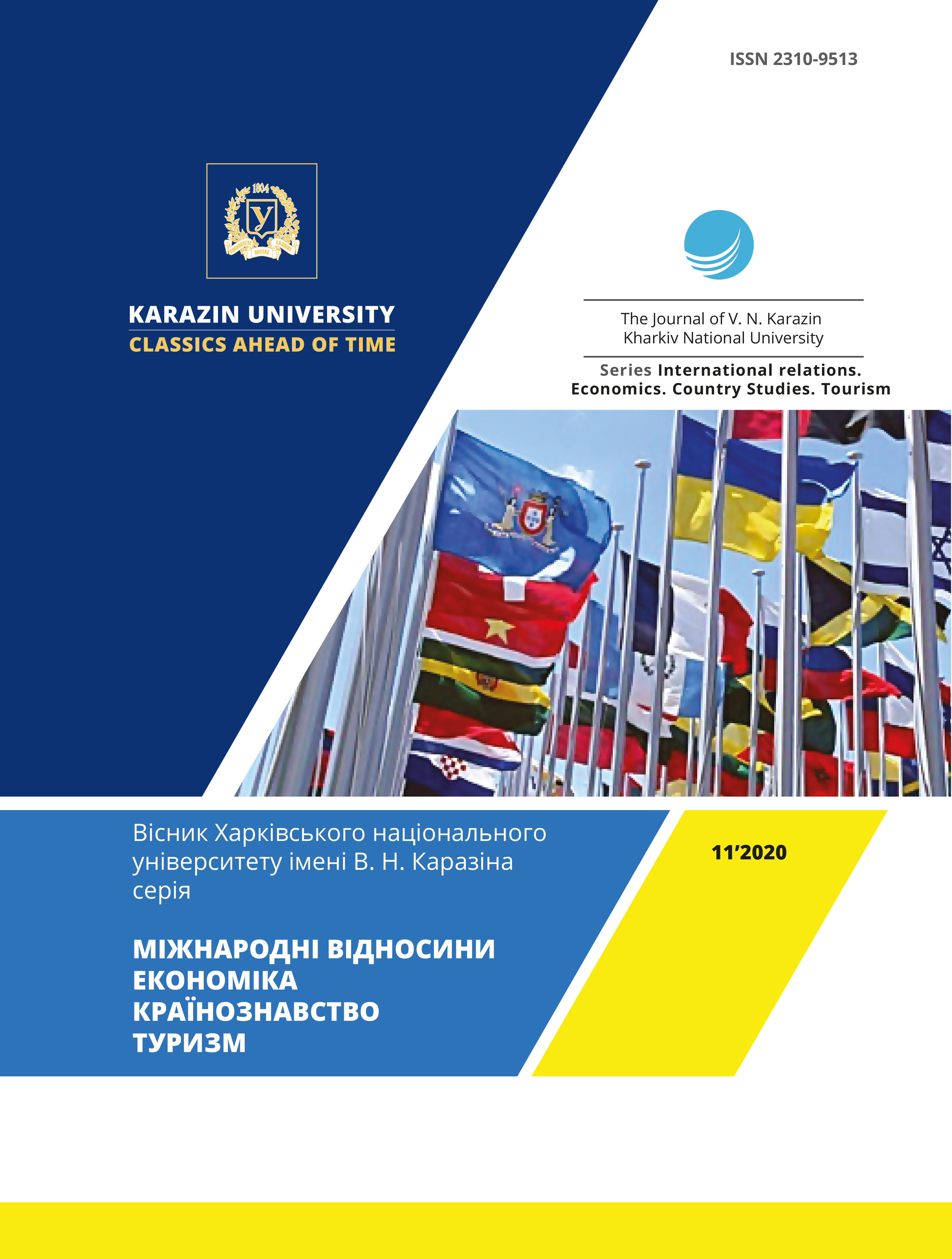Development of the theory of innovations in the context of the new industrial revolution
Abstract
The relevance of the study is due to the fact that increase of proportion of high technology production in the aggregate product of the world economy, as a consequence of the new industrial evolution mid XX-early XXI century, defines a completely new, in terms of world experience, range of system views on the global economic system. The subject of research of the article is a process of developing of the theory of innovation system, an analysis of impact of the theory of long wave cycles on the innovative development of society. The goal of the article is to analyze the development of the theory of global and national innovative high-tech systems in time, considering the hypothesis of the existence of a rigid connection between long waves and the periods of basic innovation occurrence at various phases of the waves, in order to recognize the possible options for the development of events and to model the appropriate reaction to ensure the uninterrupted functioning of the national innovation system in the context of the new industrial revolution. The objective is to research the patterns of the life cycle of innovations and their diffusion to identify the advantages and disadvantages of a transfer of high technology products for the national innovation system and also to identify the development trends and new factors, which define the essence of modern efficient high-tech system in terms of the new industrial revolution. General scientific methods are used, such as system analysis - to determine the patterns of the life cycle of innovations and their diffusion to identify the advantages and disadvantages of a transfer of high technology products for the national innovation system, factor analysis – toformalizethecause-and-effectrelationshipsoftheinvestigatedfactorsof the development of modern effective high-tech system. The following results were obtained: on the basis of the analysis of the impact of the long waves theory on the innovative development of society is proved the necessity of the fastest access of domestic enterprises to world network markets not only to develop the sales network, but also to search for innovative solutions and creative interactions. These practices are suitable for most countries, which have adopted the experience of world's innovative leaders and now are competitive players of the world market of high technologies. Conclusions: the urgency to create a strong national innovation system in Ukraine, considering the specificity of those elements that are now the basis of functioning of innovative systems.
Downloads
References
Breznitz D. (2007). Innovation and the State : Political Choice and Strategies for Growth in Israel, Taiwan, and Ireland. New Haven and London, Yale University Press.
Dovgal О., Dovgal G. (2017). Hlobalnyi innovatsiinyi prostir: peredumovy, spetsyfika ta instrumenty formuvannia [Global Innovation Space: Prerequisites, Specifics and Tools of Formation], Problems of Economy. 1, 15-20. URL: https://www.problecon.com/export_pdf/problems-of-economy-2017-1_0-pages-15_20.pdf (in Ukrainian)
Freeman C. (1987). Technical Innovation, Diffusion and Long Cycles of Economic Development The Long-Wave Debate. Berlin.
Freeman C., Clark J., Soete L. (1982). Unemployment and Technical Innovation. Study of Long Waves and Economic Development. London : Frances Pinter.
Kao J. (2007). Innovation Nation: How America is Losing Its Innovation Edge, Why It Matters, And What We Can Do To Get It Back. N.Y., Free Press.
Kastels M. (2000). Informatsionnaya epoha: ekonomika, obschestvo i kultura [Information age: economy, society and culture] / per. s angl. pod nauch. red. O.I. Shkaratana. Moskva : GU VShE (in Russian).
Kleinkneht A. (1987). Innovation Patterns in Crisis and Prosperity: Schumpeter's Long Cycle Reconsidered. London : Macmillan.
Mensh G. (1971). O dinamike tehnicheskogo progressa [On the dynamics of technical progress]. Zhurnal ekonomiki predpriyatiya, 41, 295–314. (in Russian)
Mensh G. (1972). Bazisnyie innovatsii i innovatsii sovershenstvovaniya [Basic innovations and innovations of improvement]. Zhurnal ekonomiki predpriyatiya, 42, 291–297. (in Russian)
Mensh G. (1979). Stalemate in Technology: Innovation Overcome the Depression. Cambridge : Mass.
Santa Fe Institute. URL: http://www.santafe.edu.
Schumpeter J. (1939). Bussiness Cycle. A Theoretical, Historical and Statistical Analysis of Capitalist Process. New York : MacGraw-Hill.
Van Duijn J.J. (1983).The Long Wave in Economic Life. London.
Citations
Development of the innovation system infrastructure of Kazakhstan in the context of the knowledge-intensive economy
Sabirova Rysty, Korgan Bibinur, Adiyetova Elmira, Auyezova Karlygash, Yerniyazova Zhanat & Kanatova Ainur (2024) Scientific Herald of Uzhhorod University Series Physics
Crossref
Authors who publish with this journal agree to the following terms:
- Authors retain copyright and grant the journal right of first publication of this work under the terms of a license Creative Commons Attribution License 4.0 International (CC BY 4.0).
- Authors are able to enter into separate, additional contractual arrangements for the non-exclusive distribution of the journal's published version of the work (e.g., post it to an institutional repository or publish it in a book), with an acknowledgement of its initial publication in this journal.
- Authors are permitted and encouraged to post their work online (e.g., in institutional repositories or on their website) prior to and during the submission process, as it can lead to productive exchanges, as well as earlier and greater citation of published work.




